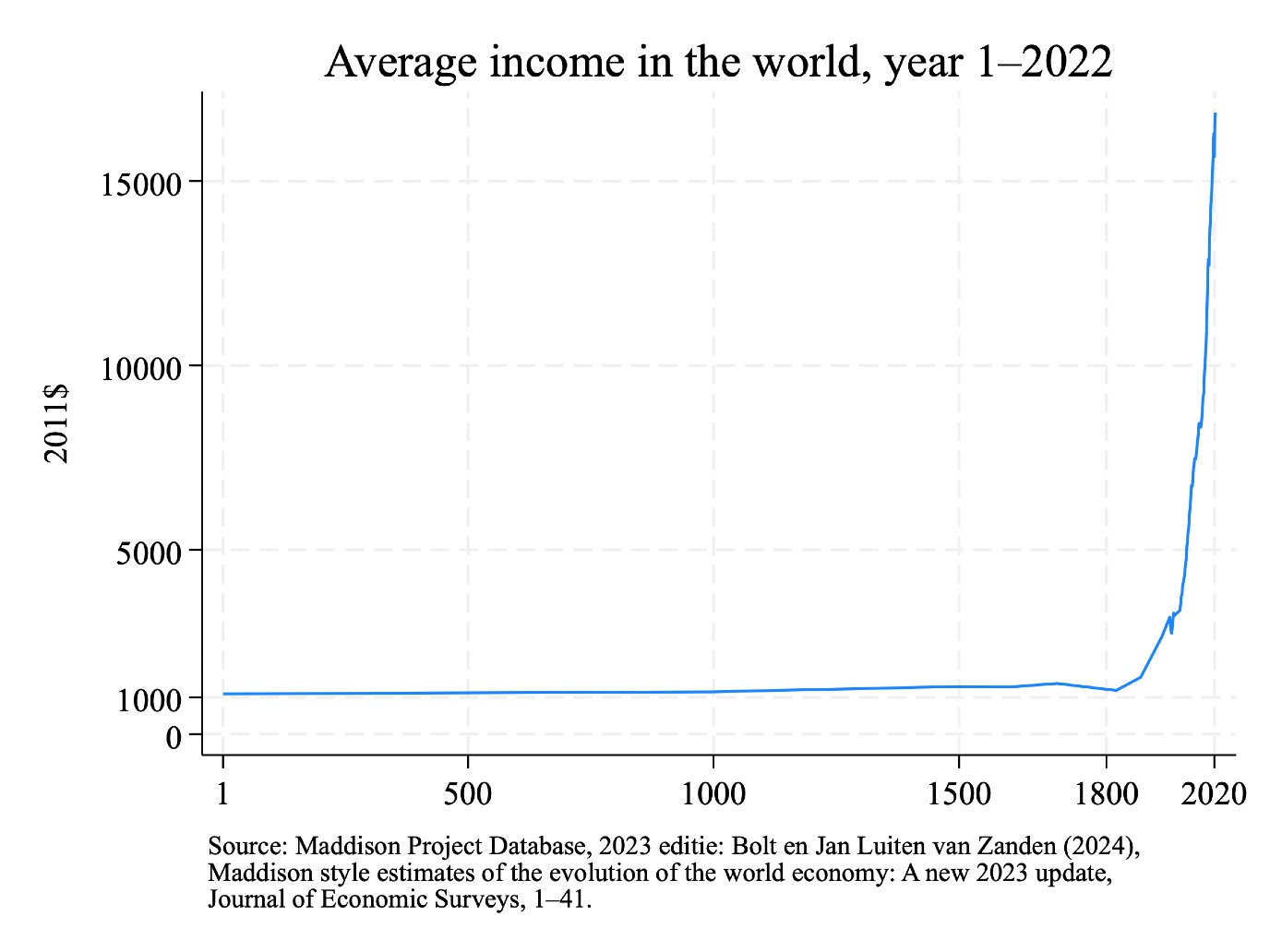Groundbreaking work on institutions and prosperity: Nobel Prize in Economics 2024 awarded to Acemoglu, Johnson and Robinson

The 2024 Nobel Prize in Economics has been awarded to Daron Acemoglu (MIT), Simon Johnson (MIT), and James Robinson (University of Chicago) for their pioneering studies on how institutions are formed and how they affect prosperity. Their work seeks to answer a fundamental question: Why are some countries rich while others remain poor? The laureates have shown that differences in countries' prosperity often stem from institutions introduced during colonization. University of Groningen economics professors Jutta Bolt and Robert Inklaar, who both focus on similar themes in their research for the Groningen Growth and Development Centre (GGDC), want to emphasize the importance of research on income differences worldwide and highlight the value of the data making this research possible.
Institutions define the rules of the game in the political and economic arenas. Acemoglu, Johnson and Robinson found that in poorer colonies, inclusive institutions were more common, leading to long-term growth. In contrast, wealthier colonies often had extractive institutions, which contributed to their decline in prosperity. This explains why some formerly rich colonies are now poor, and vice versa. Much of the inspiration for this inquiry comes from the groundbreaking research on measuring long-run development by Angus Maddison, a pioneer in the field of long-term economic analysis. Both Acemoglu and Robinson have previously given the Maddison Lecture in Economic History and Development, a lecture series organized by the GGDC at the University of Groningen in honor of the pioneer.
Maddison, whose legacy is carried on by the Maddison Project and GGDC, devoted his career to collecting and analyzing scarce data to make useful comparisons of living standards across more than 2,000 years. Thanks to his work, we can trace "history’s hockey stick"—the worldwide historical real GDP per capita from Roman times to the present. His contributions provide the foundational data that shape our understanding of economic history and global development.

The latest iteration of the Maddison Project Database, published in 2024 in the Journal of Economic Surveys , not only incorporates new time series data on GDP per capita for many countries but also refines the original Maddison methodology. This makes it the most robust dataset for studying long-run economic growth and income differences on a global scale.
This newest release shows that, while pockets of economic growth existed before 1820, the global economy only truly began to accelerate after that year. Over the period from 1820 to 2020, the average global standard of living (GDP per capita) increased by an astonishing 1,271 percent. This marks one of the most profound shifts in human history, rivaling the transition from hunter-gatherer to agrarian societies.
At the same time, income differences between countries have expanded enormously. In 1820, the average income in the richest country in the world was five times higher than in the poorest country. Today, the income in the richest country is about 135 times higher than the average income in the poorest country. The Nobel Prize Committee motivated the laureates for 2024 by stating that “Reducing the vast differences in income between countries is one of our time’s greatest challenges. The laureates have demonstrated the importance of societal institutions for achieving this.” It is due to the work of Angus Maddison and the Maddison Project that we know how large (and increasing) these income differences are.
More information:
Watch Daron Acemoglu’s Maddison lecture (2016) via YouTube.
Questions? Please contact Jutta Bolt or Robert Inklaar.
| Last modified: | 16 October 2024 3.35 p.m. |
More news
-
01 April 2025
UGBS Executive MBA best-rated MBA | Dutch Master's Guide 2025
According to the independent Keuzegids Masters 2025, the Executive MBA of the University of Groningen Business School is the best rated MBA in the Netherlands (both part-time and full-time programmes).
-
01 April 2025
Executive Master of M&A and Valuation accredited as joint degree with Vrije Universiteit Amsterdam
Starting 1 September, participants enrolled in the programme will receive a master's degree from both the University of Groningen and Vrije Universiteit Amsterdam upon successful completion.
-
05 March 2025
Women in Science
The UG celebrates International Women’s Day with a special photo series: Women in Science.
